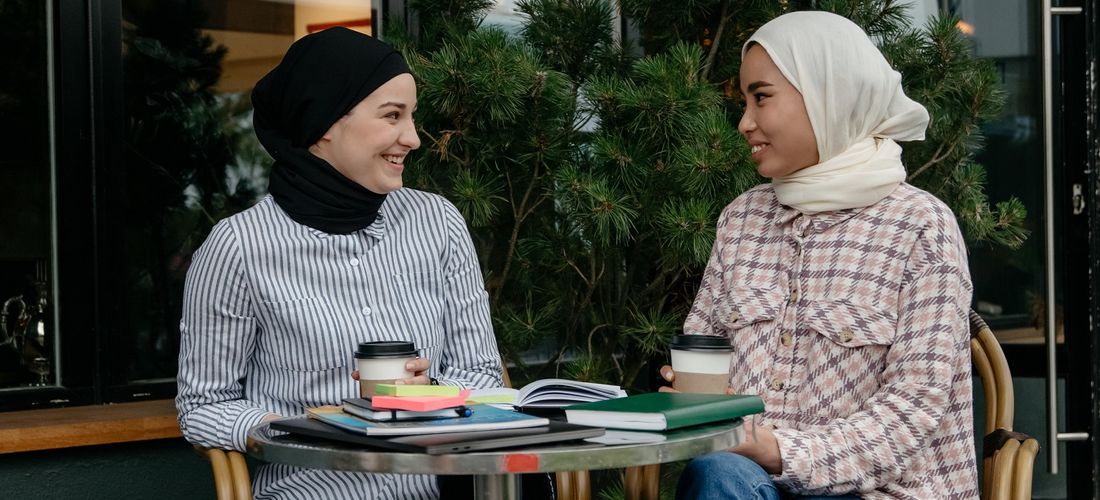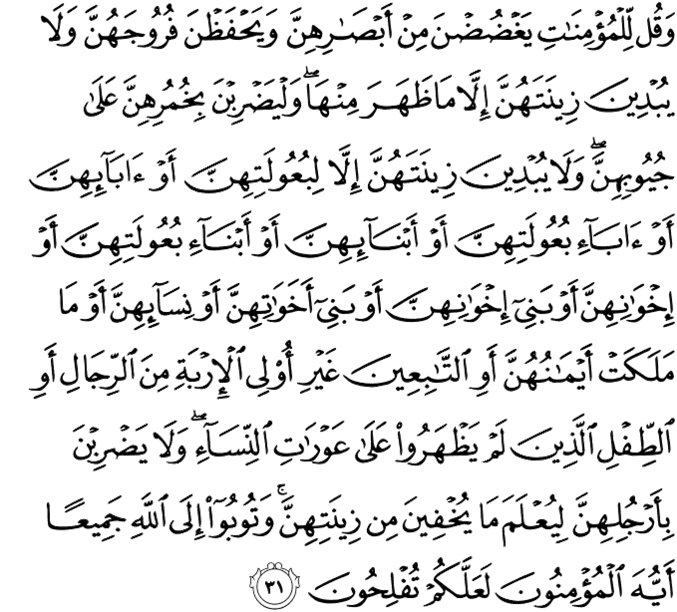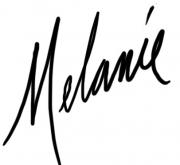Ask Haute Hijab: Is Hijab Really Mandatory (Fard)?
Melanie's Corner
|
Apr 15, 2014
|
7 MIN READ


Salam, I have been wearing hijab for 11 years and the past 6-7 years of them have been a struggle, both spiritually and emotionally. I don't believe it is obligatory to wear it at all having looked time and time again at the Quranic verse, which clearly talks about covering the cleavage, not the hair. God does not mince his words - if it was meant to be obligatory, it would have been clearly commanded, not phrased the way it is in the Quran as in take your "khimar" and cover your chest. I have been on and off about removing it, because I worry that I am letting my own ego and desires cloud my judgment on this, but at the same time in my heart of hearts I just do not believe it is obligatory, more cultural - modest dress is what is obligatory, which will be coloured by the culture in which you live. Even when I wore it, I did it more for my parents who expected it from me, and I didn't want to disappoint, not because I truly believed in it.
Wa alaikum as Salam!
Thank you for your question and for sharing your concern, may Allah (S) reward you for your courage and for being honest with yourself! I’m going to first put forth the Islamic mandates that refer to hijab and then address your second point on wearing hijab out of parental expectation.
There is clear and decisive scholarly consensus (ijma`) on the mandate of hijab. The general ayah governing the head covering is in Surah Al Ahzab, verse 59 where Allah (S) states,
{يا أَيُّهَا النَّبِيُّ قُل لِّأَزْوَاجِكَ وَبَنَاتِكَ وَنِسَاء الْمُؤْمِنِينَ يُدْنِينَ عَلَيْهِنَّ مِن جَلَابِيبِهِنَّ ذَلِكَ أَدْنَى أَن يُعْرَفْنَ فَلَا يُؤْذَيْنَ وَكَانَ اللَّهُ غَفُوراً رَّحِيماً. {الأحزاب: 59
“O Prophet, tell your wives and your daughters and the women of the believers to lower over themselves a portion of their jilbabs. That is more suitable that they will be known and not be harmed. And ever is Allah Forgiving and Merciful.”
The word, jilbab in this context should not be interpreted by the modern usage of the word. According to the Lisan al Arab (quintessential Arabic dictionary) jilbab in this context refers to the khimar or headscarf. This verse specifically states that we wear the headscarf in order to be known and recognized as believing women and to be protected.
Furthermore, in Surah Noor, Ayah 31, Allah (S) states,

You are absolutely right in that Allah (S) does not mince words, but this ayah does not simply mean to, “take your khimar and cover your chest,” as you put it. The context in which the verse was revealed must be understood in order to fully comprehend the ayah.
According to Abu Abdullah Qurtubi, the 13th century mufassir (scholar who interprets the Quran), women at the time of the revelation wore their headcovers tied back behind their necks; leaving the upper chest, neck and ears bare as was the practice of the Christians at the time, as well as exposing the opening (singular jayb, plural juyub translated as “chests” in the above verse) at the top of the dress. The Quranic revelation confirmed the practice of covering the head, understood from the use of the word khimar in the verse, (which means headcovering, which was already in practice) but also explained that the custom of the time was not sufficient and that women were henceforth to tie the existing headcover in front and let it drape down to conceal the throat and the dress opening at the top.
When you speak of the hijab as a cultural practice, indeed it is a religious cultural practice that pre-dates Islam as there is clear evidence that Christian and Jewish women before Islam wore some sort of head-covering. (The tradition was practiced by Christian women until the 20th century, read more.) Islam perfected this practice when Allah (S) revealed the above verse, mandating that the existing head covering was to cover more than just the hair - but the neck, upper chest and ears as well.
Allah (S) gave us clear reasoning from the ayah above as to why we wear hijab – in order to be known. Quoting Anse Tamara Gray in her article, "Lean In - Our Feminist Manifesto” (which I highly recommend you read in full),
“Like a sports team – We recognize each other. Like an ethnic background – we feel comfortable with each other. Like a flag held high in the field of battle – we bravely go out each day – in every country of the world – and represent our Prophet ﷺ – our religion. We represent our men, who too often blend into the background, and we represent our hurting women who need our activism. We represent any woman of faith unsure how to outwardly express her conviction. We wear the scarf that we may be known.
The second part of the verse, ‘that we may not be harmed’, is not a guarantee of a flawless life. It does not mean you will not receive hurtful words from an ignorant soul; it does not mean you won’t be mocked, or even that you won’t be oppressed. Indeed, if we look to the prophetic example we understand that neither men nor women ran from physical pain, or life-threatening situations. If we look at Mecca and then later at Medina, women easily put themselves in danger to defend their faith; they did it with the approval and support of the Prophet ﷺ – women at battle like Um Salamah and Nusaibah bint Ka’b, women on missions like Asma bint Abi Bakr and Rufaidah al Aslamiyyah, women who fearlessly spoke the truth and risked personal hardship like Um Sulaim, and women who risked their emotional wellbeing like Zainab bint Muhammad ﷺ.
When the verse was revealed, {that the women should close their scarves at the dress slit} [al Nūr: 31], it is narrated by ʿᾹʾishah (R) that the women tore their embroidered fabric, fabric that was decorated with pictures of tents – in other words, fancy fabric that was more than likely of some value to the women, either in time spent embroidering or in money invested in purchasing. They tore this fabric and covered themselves with it. It is akin to the Muslims throwing their alcohol in the streets when the verse forbidding alcohol was revealed. No one ran around looking for a man to ask permission of, nor did they question their own interpretations of the verse. They understood. They followed through. They leaned in. And we follow in their footsteps when we too lean in and embrace this flag of our religion, this hijab."
Muslim women wear hijab because the Qur’an unambiguously orders us to, and there is no qualifying text or hadith or even any lexical possibility to show that the Qur’anic order might mean anything besides obligation. The ahadith all confirm this obligation and the vast majority of Muslim scholars are in unanimous agreement about it and have been from the time of the Prophet (S) down to today.
Now, it sounds as though you wore hijab simply because your parents expected you to, in your own words, "I did it more for my parents who expected it from me, and I didn't want to disappoint, not because I truly believed in it," and there’s nothing wrong with wearing hijab because it’s expected of you, but wearing hijab without conviction is like praying without wudu. Sure you’re doing the actions, but how much are you really benefitting from it? Personally, I myself wore hijab because it was expected of me, and it was fine. I didn’t have much conviction in wearing it but at the same time I was 13 years old. It wasn’t until college that I truly understood the meaning behind hijab – and actually felt it protecting me and setting me apart from other women. I watched as men would hit on other women as they walked by and put their heads down when I walked passed. I learned to appreciate hijab on a level that made me take ownership of the decision. It was no longer out of obligation or to please my parents, it was for myself. It was now between myself and Allah (S).
My advice to you is to take ownership of your hijab. Take the time to truly understand these ayat and the reason hijab was prescribed. Take the time to examine yourself and your own “ego and desires,” as you put it, and where this underlying doubt is coming from. Is it because vanity or love for dunya is getting the best of you? Do you feel like wearing hijab is bringing you down in some way? Think about what is at the root of these feelings and address them head-on. Make sincere du’a that Allah (S) opens your heart to the truth and continues to allow you to be honest with yourself. Of course, you always have us to lean on and we pray that you find the conviction in hijab your heart is seeking, with the help of Allah (S).
Have a question? E-mail us at ask@hautehijab.com! If you're thinking about wearing hijab, check out our style guide, check out our New Hijabi Starter Kit and get started here!

Subscribe to be the first to know about new product releases, styling ideas and more.
What products are you interested in?

